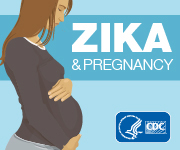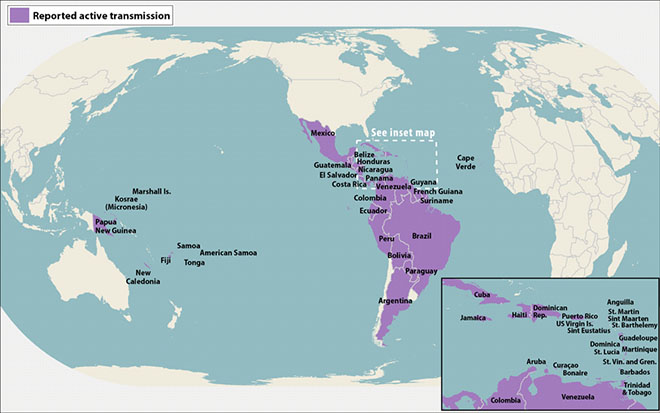
| July 2016 | |||||||||||
| Top stories | |||||||||||
| In the news | |||||||||||
| Photos | |||||||||||
| Contact us | |||||||||||
| Archive | |||||||||||
|
Zika transmission identified in patient to caregiver |
July 18, 2016 --
The Utah Department of Health and CDC are investigating a new case of Zika that is not believed to be travel-related, sexually transmitted, or acquired through local mosquito vectors. This case, announced by CDC on July 18, was a family contact who provided care for an elderly man. The man died in late June from unknown causes.

The deceased patient was found to have travel-acquired Zika virus with an abnormally high viral load. The investigation into transmission of the virus is ongoing.
That same week, the Florida Department of Health announced an investigation of at least one possible non-travel related case of Zika virus in southern Florida.
CDC announced on July 15 an earlier investigation of the first confirmed case of female-to-male sexual transmission of Zika virus. The woman who returned to New York reported that she had traveled to an area with ongoing transmission of the virus. All previous documented cases of sexual transmission have been spread by men to their partners.
As of July 20, CDC reports 1,403 travel-related Zika cases in the US, 15 sexually transmitted cases and one laboratory-acquired case. It also has established five cases of Guillain-Barré syndrome associated with the virus.
Health officials ask that pregnant women not travel to areas with Zika. A complete list of these countries is available on a CDC Zika web page. Women who are trying to get pregnant are advised to talk to their doctor or other health care provider about travel plans.
Many people infected with Zika virus will not have symptoms or will only have mild symptoms. The most common symptoms are fever, rash, joint pain and conjunctivitis. Other symptoms may include muscle pain and headache.
Iowa health care providers suspecting a potential case of Zika virus should first contact the Iowa Department of Public Health’s Center for Acute Disease Epidemiology at 800-362-2736. CADE staff will consult with the provider to determine whether the case meets the CDC testing criteria. Monthly reports about Zika cases in Iowa and other updates are available on the IDPH Zika website.
Additional information about Zika is available from CDC.
